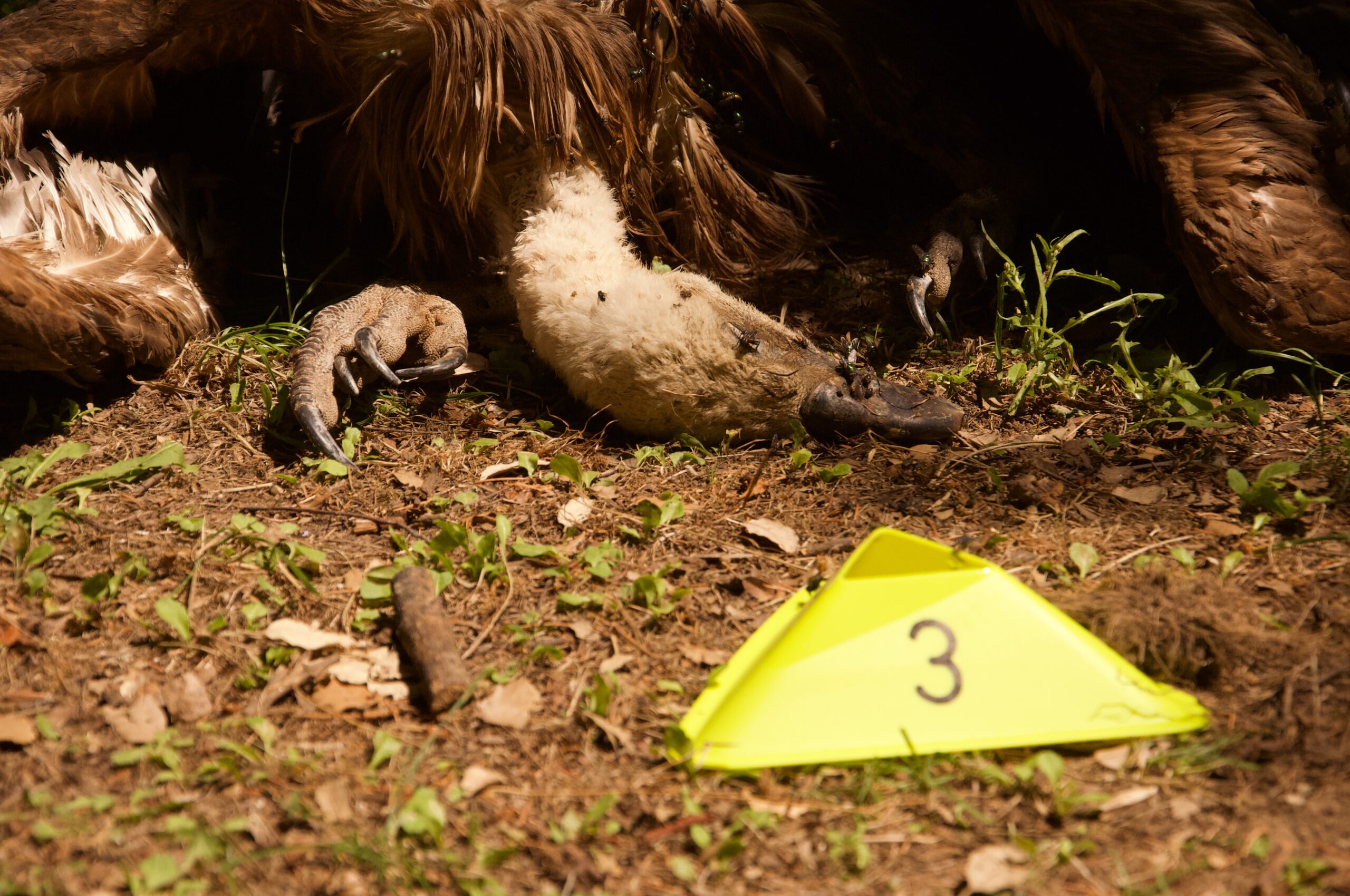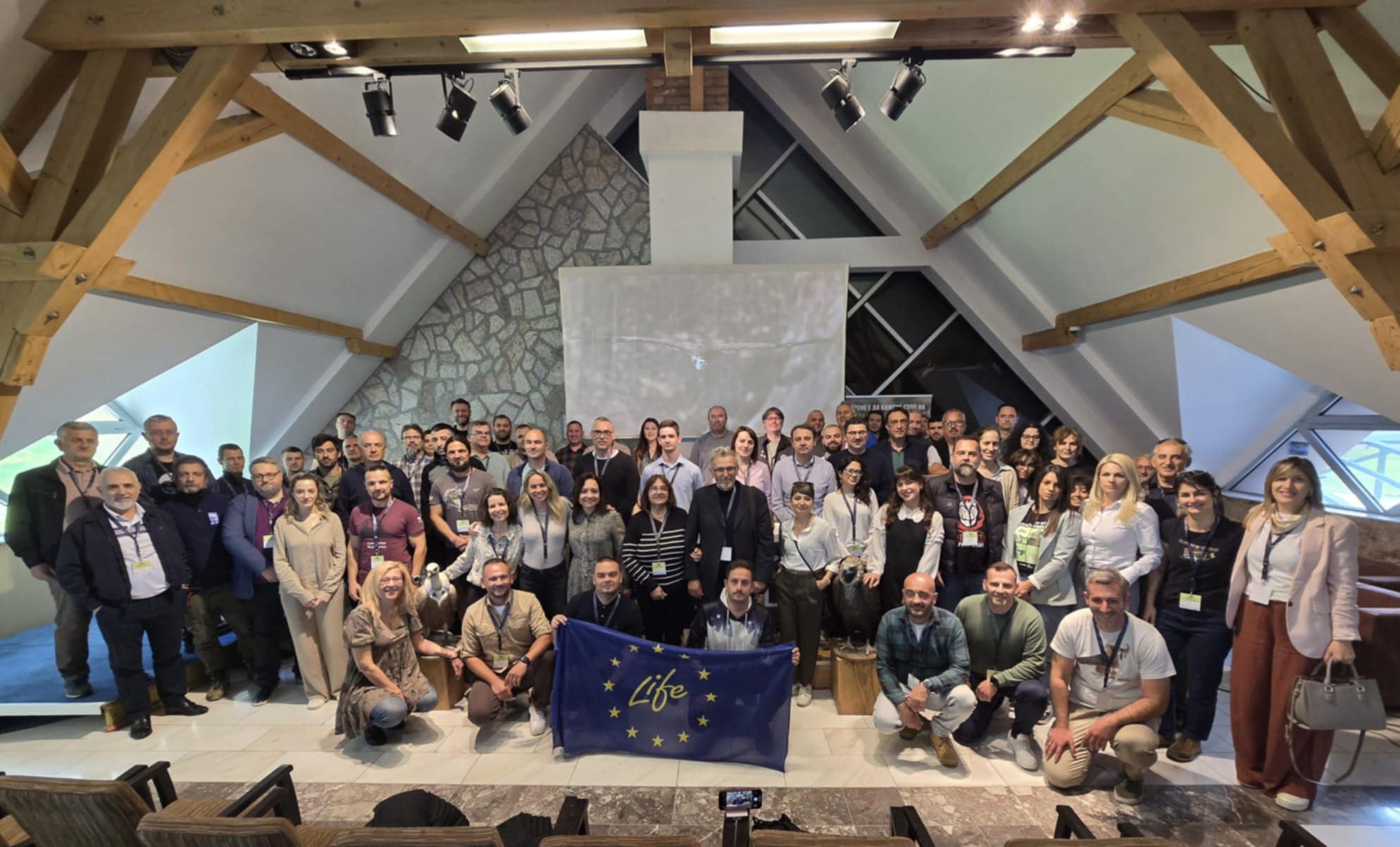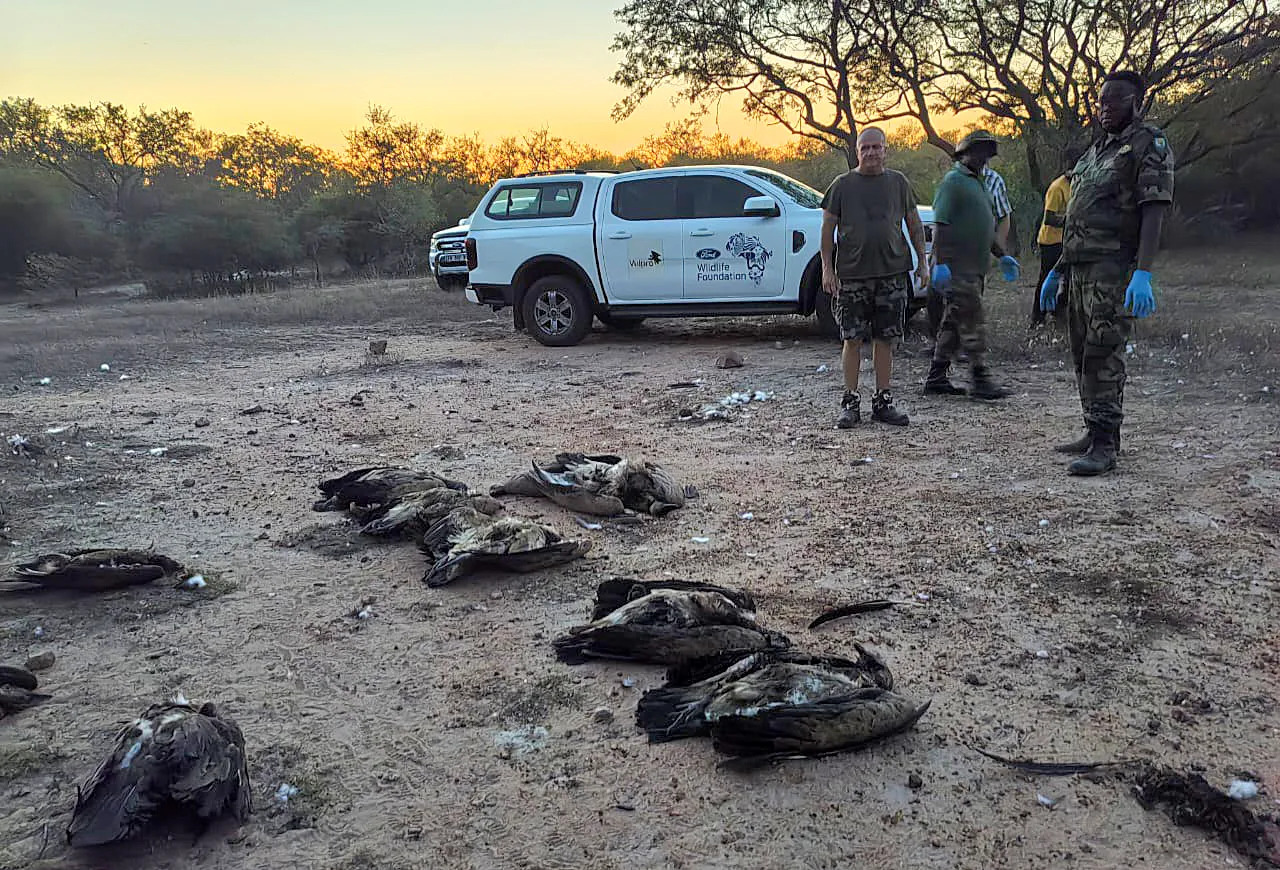
We regret to inform you that there have been more vulture poisonings in Africa over the last few weeks. The latest mass killings happened in Kruger National Park (South Africa) with 119 vulture deaths and in Enugu State (Nigeria) with over 50 vulture deaths.
Unfortunately, mass poisonings in Africa are successive and frequent, driving several species of African vultures to extinction. Just last month we reported over 600 vultures deaths due to poisoning in Africa. This, of course, causes a devastating effect on the population but also the surrounding environment, as vultures are essential for the ecosystem.
Kruger Park mass poisonings
Rangers in the South African National Parks (SANParks) found 119 vulture carcasses next to a poached buffalo last Wednesday 17 July in the Vlakteplaas section of Kruger National Park (KNP). A SANParks spokesperson, Ike Phaahla, told TimesLIVE that when the rangers discovered the vulture carcasses, they were probably already a week old.
All the vultures that died are considered critically endangered. The victims of this incident include:
- 117 White-backed Vultures
- 1 Hooded Vulture
- 1 White-headed Vulture

Rangers suspect that poachers cut out the meat from the buffalo and laced the rest of the carcass with poison, targeting vultures. The motive behind this poisoning is likely due to the fact that vultures help rangers track poachers. When vultures circle a carcass, rangers can see it from miles away. Therefore, poachers kill the birds so that they are less likely to be found.
The SANParks rangers are currently investigating the incident to find the criminals responsible and are examining two vulture carcasses to detect what poison was used to kill the birds.
Meanwhile, the Kruger National Park rangers recently arrested nine alleged poachers for separate instances at the park.
Enugu mass poisonings
Last week, residents in the Enugu State in Nigeria were shocked to find over 50 vulture carcasses around a local market. A viral video showing the scene further spread chaos among the community – causing concern and panic. Why? The video speculated that the vultures died due to eating poisoned cow meat sold at the market, but the local police soon dismissed these speculations.
https://www.instagram.com/?utm_source=ig_embed&utm_campaign=invalid
The state Police Public Relations Officer (PPRO), SP Ebere Amaraizu, reassured the community that there is no cause for alarm. After investigating the incident, it was revealed that poachers were responsible for the death of vultures. The most likely motive is for belief-based use. Vultures are captured and killed, and belief-based practitioners use their body parts for practices such as traditional medicine. Research shows that the illicit vulture trade is most prevalent in Nigeria, and now there is a project tackling the issue head-on.
Urging the union to address the threat of wildlife poisoning in Africa
The IUCN SSC Vulture Specialist Group Co-Chairs, André Botha and Chris Bowden, sent a letter on Monday 22 July, supported by 85 Africa-based organisations, to the Chairperson of the Africa Commission asking for action. The letter urged the union to encourage member states to realise the catastrophic danger of poisoning, which threatens vultures and other wildlife, and take action by implementing the relevant laws and resolutions, including the Vulture Multi-species Action Plan to address the threat.
State of vultures and conservation actions in Africa
In the past 30 years, some African species have declined by 80%. Seven of Africa’s vulture species are on the edge of extinction, with four species considered Critically Endangered, while three other species are endangered. The Vulture Multi-species Action Plan (Vulture MsAP), co-developed by us here at the Vulture Conservation Foundation, and endorsed by the Convention for Migratory Species (CMS), concludes that poison is the biggest threat to vultures worldwide, and a significant part of this global action plan for vultures focuses on the actions needed to fight this threat. Furthermore, the Vulture MsAP is a global strategic blueprint identifying priorities and actions to conserve 15 species of old world vultures, approved in the conference of the parties of the Convention for Migratory Species, which states that poison with poisoned baits (often against predators of livestock) is the main threat to vultures worldwide.
How we tackle vultures’ biggest threat
The VCF is particularly active in fighting this threat and is implementing many projects across Europe and many actions against poisoning. We are also in contact with some African colleagues fighting this threat, but the news coming from that continent are even bleaker than from Europe – seems that the African vulture crisis that led to several African vulture species being considered globally endangered in the last few years is continuing. In Europe, we are actively pursuing different lines of work to fight this threat, among which is the Balkan Anti-Poisoning Project, funded by the MAVA Foundation. The project is working and funding local partners in five counties (Croatia, Albania, Bosnia-Herzegovina, North Macedonia and Greece) to try to eradicate this illegal and highly damaging practice.



